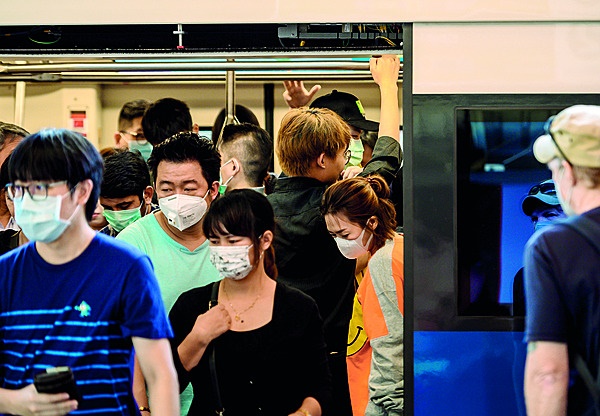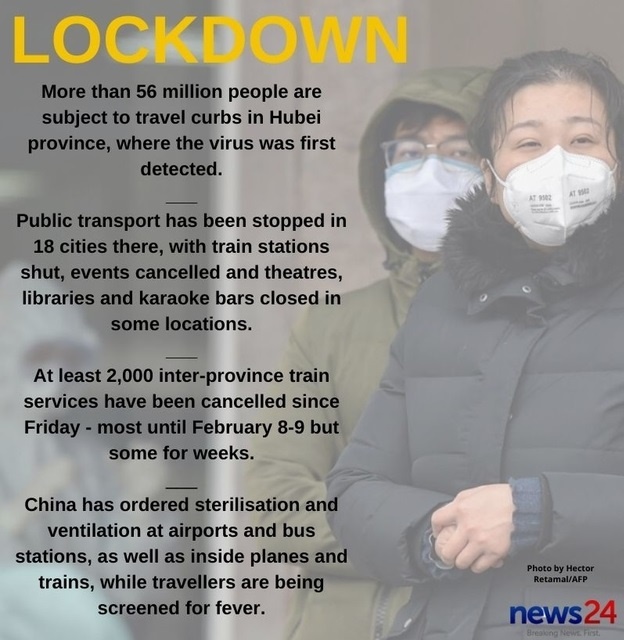
In a recent book on epidemics and healthcare systems in Africa, published by the Mapungubwe Institute for Strategic Reflection (Mistra), researchers warn that the top diseases which are likely to cause severe epidemics across the globe are zoonotic diseases – infections arising out of contact between humans and animals.
Sadly, the coronavirus has proven that prediction right, with the World Health Organisation declaring the outbreak a global emergency.
But what does it mean for South Africa?
The first question is: Is our already weakened and overburdened health system prepared?
The national health department has announced that it has the necessary systems in place in the event of an outbreak.
We are told that three hospitals are prepared for such an emergency – Charlotte Maxeke Academic Hospital, Tembisa Hospital and Steve Biko Academic Hospital. But can these hospitals, and indeed our health system, cope and protect us from an epidemic?
Not so long ago the SA Human Rights Commission raised concerns that Tembisa Hospital was not equipped to counter the recurrence of a bacteria outbreak that tragically killed 10 babies.
How does that engender confidence that the hospital is well-prepared to handle the spread of the coronavirus?
This raises the central question addressed in Mistra’s book, one that healthcare specialists across Africa are increasingly emphasising.
Read: SA ups surveillance for all travellers from Asia as coronavirus death toll rises to 25
We tend to focus on our health system only when health crises hit the headlines – when babies have died or when an epidemic such as Ebola is looming.
But the truth is that it is when there is no crisis that we need to strengthen our healthcare systems.
The neglect of essential services and infrastructure, as well as insufficient medical staff who can offer both high levels of skill and decisive management, leads to a health system that is unable to cope with daily health needs, let alone epidemics.
We cannot afford to wait for emergencies like the outbreak of the coronavirus to address our ineffective hospitals and healthcare systems.
This is perhaps best understood in relation to individuals.
When a crisis hits a family, they can weather it best if they already have strong financial and emotional structures within. So too with countries and continents.
Efficient surveillance systems are key to the early detection of diseases and outbreaks. Do we have adequate systems in place that can immediately pick up imminent infectious diseases?
Furthermore, information sharing is a crucial part of strengthening our healthcare system. Does the government have appropriate ways of alerting and educating communities?
If the coronavirus comes to our country, it will be too late to ask if we have the doctors, nurses and community workers needed to treat those affected.
South African hospitals and clinics have been known to run out of medication.
But we know that in an epidemic most infections occur between the start of an outbreak and the arrival of the relevant medications.
If we cannot store and provide medicines when we are not facing immediate crisis, how will we be able to respond adequately to an epidemic?
Let us use the imminent threat of the coronavirus to strengthen our healthcare system, to work out our weaknesses and challenges.
Let us not wait for tragedy to hit first.
But the most crucial thing to take from the coronavirus is the importance of the way in which Africa is changing.
The conditions that led to the outbreak of the coronavirus in China are a warning bell about the changes Africa is experiencing.
Not only are we experiencing climate change, but also rapid urbanisation and a rapidly exploding population.
The urban population of Africa is predicted to increase from 36% in 2010 to 50% in 2030.
One crucial consequence is that humanity is increasingly coming into contact with animals.
For example, the bats that once lived in forests are now seeking food and shelter in dwellings close by which have replaced their natural habitat through deforestation.
This pattern is what has led to healthcare specialists foreseeing a major zoonotic threat to human wellbeing.
China, which is more organised than much of Africa, has battled to contain the coronavirus despite the fact that it acted swiftly and even ruthlessly to contain the disease.
The lesson here is that health campaigns should include the handling of wild animals – through using protective gear and taking other precautions – and taking cognisance of animal migration patterns, which would help the healthcare system to develop strategies to counter potential outbreaks of zoonotic diseases.
Let us take note now while we have time to plan and prepare.
Zoonotic diseases, much like climate change, are upon us almost before we have realised the full scale of implications to human health and wellbeing.
The coronavirus is a chilling warning of what the future might hold for us.
It has struck better resourced, better organised China, let it not hit South Africa, and Africa, unprepared.
Mazibuko is a senior researcher at Mistra.
- She has published on the use of nanotechnology to combat diseases in Africa and is the editor of Mistra’s recent book, Epidemics and the Health of African Nations, obtainable from major bookstores and at sales@jacana.co.za
 | ||||||||||||||||||||||||||
Get in touchCity Press | ||||||||||||||||||||||||||
| ||||||||||||||||||||||||||
| Rise above the clutter | Choose your news | City Press in your inbox | ||||||||||||||||||||||||||
| City Press is an agenda-setting South African news brand that publishes across platforms. Its flagship print edition is distributed on a Sunday. |




 Publications
Publications
 Partners
Partners









